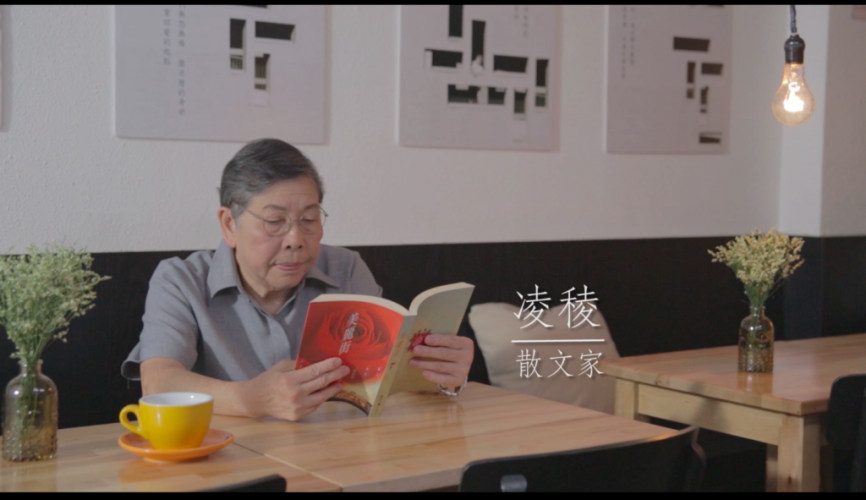Lio is a writer and the film adaptation of her novel Diago was one of the competitors in the Official Selection Competition of the Karlovy Vary International Film Festival 2010.

Film still for When Felicity Calls Photo courtesy of Emily Chan
A good screenwriter excels at creating stories through words; a good director excels at telling stories through lens. The role of screenwriters and directors are divided, each with their own duties. But some directors like to take the screenwriting role as well—those who are good at both can probably be regarded as genius. However, how many of these geniuses are out there in the world?
When a young Macao director also shoulders the role of screenwriter and producer at the same time, it’s usually because of the crews’ limited budget that forces them to simultaneously take on three roles, regardless of long or short films. Another factor is that talented screenwriters are rarer than directors in Macao, so directors have no choice but to write scripts on their own. Of course it cannot be ruled out that some people think they are “extremely talented”: “If I can shoot a movie, of course I can write a script.” For the long-term development of Macao movies, let’s hope this situation will not continue.
Because movies originate from literature, and literature creates movies.
The young art with only a century’s history, movies are closely related to ancient literature. This relationship between images and words is reflected in movies taking reference from literature. For instance, the narrative technique, structural style and presentation skills in fictions provide rich nutrition for movies; the profound connotations and abundant manifestations in literary works have provided references for the expression of lens’ language in movies. In the history of global movies, a lot of films were adapted from literary works, and almost all movies which are adapted from classic literary masterpieces have gone on to become gems of films.
That being said, are Macao movies related to Macao literature? Of course they are. In the 1980’s there was a mainland drama series adapted from veteran fictionist Chou Tong’s work The Crossings; the movie The Bewitching Braid was adapted from a fiction by famous Macanese writer Henrique de Senna Fernandes. Diago, which was released in Macao and more than twenty provinces in the mainland on the 10th anniversary of Macao’s handover, was adapted from my fiction. One More Week that came after was adapted from dramatist Lei I Leong’s work; Streets of Macao, filmed by Hong Kong and Macao directors two years ago, was composed of seven short stories, one of which was adapted from local fictionist Leong Sok Kei.
The topical micro-movie of the year When Felicity Calls was adapted from Rai Mutsu’s novel of the same title. The movie was co-released by the Pen of Macau and the Macao Foundation. The word “literature” was flaunted because the story surrounds a literary dream—a young man chasing after his dream to become a full-time writer; and a lot of characters were played by Macao writers as guest performers. More importantly, the aim to shoot the movie was to promote the biannual Macao Literary Award, as well as to better promote the event “Macao writers going into campus”, which allows secondary school students to get to know Macao writers and Macao literary works.
Macao writers bear literary dreams; Macao directors bear movie dreams. The two can cooperate to create better combination, resulting in connotative, mature, and marketable movies.
Standardly, the first thing a movie director engages in is the literary script created by screenwriters through literary languages. When Macao movie creation goes down the path of the standard procedure, how can our directors go out of Macao to compete if they lack literal accomplishment, and do not know how to absorb “art nourishment” from literal works?
Directors, please spend time to read Macao literature closest to you when you have time, and learn how Macao writers tell stories of Macao, take reference from their narrative technique and skill to shape a character, to enhance your own artistic means.